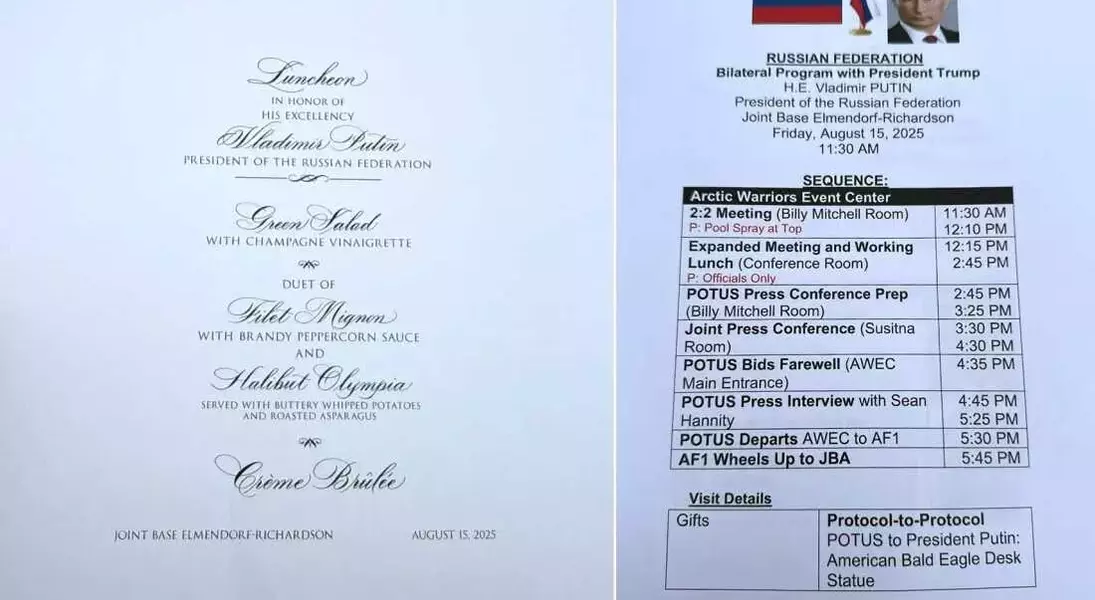



In an alarming oversight, confidential papers related to the recent high-level discussions between President Donald Trump and Russian President Vladimir Putin were inadvertently left on a public hotel printer in Anchorage, Alaska. These documents, clearly marked with U.S. State Department insignia, divulged critical details about the August 15th meetings, including specific venues, precise timings, and contact information for various U.S. government employees. The sensitive nature of these papers also extended to revealing a planned ceremonial gift from the U.S. President to his Russian counterpart – an \"American Bald Eagle Desk Statue\" – and even the intricate details of a proposed luncheon, complete with a menu and seating arrangements, though the luncheon itself was ultimately canceled.
The discovery was made by three hotel guests at the Hotel Captain Cook, situated near Joint Base Elmendorf-Richardson, the site of the U.S.-Russia summit. The eight pages of documents, seemingly generated by U.S. staff, contained an array of sensitive data, from the names and phone numbers of U.S. personnel to a comprehensive list of 13 U.S. and Russian state leaders, complete with phonetic pronunciations for the Russian delegates. This incident follows a pattern of recent security lapses involving U.S. officials, as highlighted by a UCLA law professor specializing in national security, who criticized the "sloppiness and incompetence" evident in such an oversight. Previous instances include the accidental inclusion of an unauthorized individual in a law enforcement group chat detailing an active manhunt and a journalist inadvertently being added to a chat discussing military operations.
This event underscores the paramount importance of stringent information security protocols, especially in the context of international diplomacy. The accidental exposure of such detailed information, even if seemingly innocuous like a lunch menu, can have far-reaching implications for national security and international relations. It serves as a stark reminder that vigilance and meticulous attention to detail are indispensable when handling classified or sensitive government communications, emphasizing the continuous need for robust training and adherence to security best practices to prevent future vulnerabilities.
